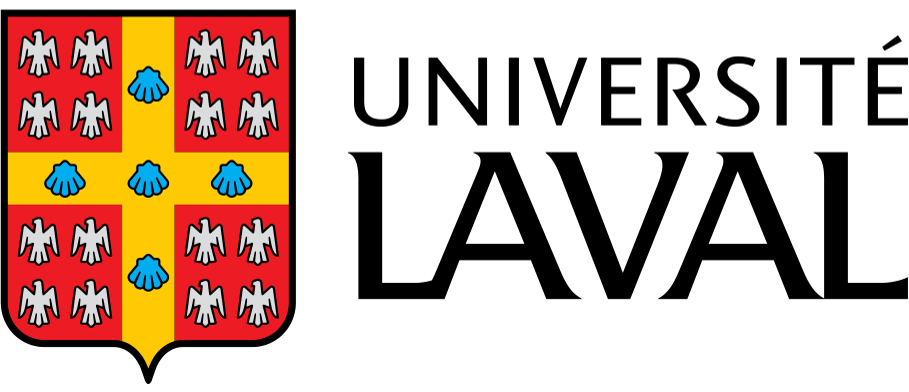
This course is an essential resource for the research community in Canada and internationally. Designed to promote Responsible Conduct of Research (RCR), also known as scientific integrity, it represents an initiative to strengthen ethical and professional standards within the scientific community. This educational program is broken down into 8 modules, each offering content essential to a thorough understanding of the fundamental values and ethical principles underpinning the responsible conduct of research. At the end of this training, participants will be equipped not only with an enhanced knowledge of the norms and values of the responsible conduct of research, but also with practical tools for anticipating, identifying and resolving the ethical dilemmas inherent in scientific research.
Read more
This course is an essential resource for the research community in Canada and internationally. Designed to promote Responsible Conduct of Research (RCR), also known as scientific integrity, it represents an initiative to strengthen ethical and professional standards within the scientific community. This educational program is broken down into 8 modules, each offering content essential to a thorough understanding of the fundamental values and ethical principles underpinning the responsible conduct of research. At the end of this training, participants will be equipped not only with an enhanced knowledge of the norms and values of the responsible conduct of research, but also with practical tools for anticipating, identifying and resolving the ethical dilemmas inherent in scientific research.
This course is an essential resource for the research community in Canada and internationally. Designed to promote Responsible Conduct of Research (RCR), also known as scientific integrity, it represents an initiative to strengthen ethical and professional standards within the scientific community. This educational program is broken down into 8 modules, each offering content essential to a thorough understanding of the fundamental values and ethical principles underpinning the responsible conduct of research. At the end of this training, participants will be equipped not only with an enhanced knowledge of the norms and values of the responsible conduct of research, but also with practical tools for anticipating, identifying and resolving the ethical dilemmas inherent in scientific research.
CREDITS
Funding
This course has been funded by The Secretariat on Responsible Conduct of Research (SRCR), with the support of Université de Montréal and HEC Montréal.


![]()
Design and development
This course is the result of a project led by the Université de Montréal School of Public Health (represented by Bryn Williams-Jones and Sihem Neila Abtroum, Department of Social and Preventive Medicine, with support from Emmanuelle Marceau and Vardit Ravitsky) and HEC Montréal (represented by Joé Martineau, Department of Management and Audrey-Anne Cyr, Department of Entrepreneurship and Innovation, with support from Jacques Robert, Director of Innovation and Pedagogical Development and the Learning and Pedagogical Innovation Department) in collaboration with Université de Laval (represented by Lyne Letourneau, Department of Animal Sciences).

![]()

What's inside
Learning objectives
- Objectives of this mooc:
- Make researchers aware of the values and principles of the responsible conduct of research.
- Familiarize researchers with potential challenges and complex situations that put the responsible conduct of research to the test.
- Equip researchers with the skills and tools to anticipate and manage the ethical challenges associated with scientific research.
- Objectives of this mooc:
- Make researchers aware of the values and principles of the responsible conduct of research.
- Familiarize researchers with potential challenges and complex situations that put the responsible conduct of research to the test.
- Equip researchers with the skills and tools to anticipate and manage the ethical challenges associated with scientific research.
Syllabus
Module 0 - Welcome to the course!
Module 1 - INTRODUCTION TO THE RESPONSIBLE CONDUCT OF RESEARCH
Module 2 - REGULATING THE RESPONSIBLE CONDUCT OF RESEARCH
Read more
Syllabus
Good to know
Save this course
Activities
Review the course syllabus and familiarize yourself with the learning objectives
Show steps
Gain a clear understanding of the course structure and expectations to better plan your learning journey.
Show steps
-
Read the course syllabus carefully.
-
Identify the key learning objectives and assessment criteria.
-
Consider how the course aligns with your research interests and career goals.
Refresh Ethical Principles in Scientific Research
Show steps
Ensure foundational knowledge in ethical principles before the course begins.
Show steps
-
Review essential concepts of research integrity, such as honesty, transparency, and objectivity.
-
Explore case studies to understand how ethical dilemmas arise in scientific research.
Review the basic principles of research ethics
Show steps
Strengthen your foundational understanding of research ethics to better grasp the complexities of the course material.
Browse courses on
Research Ethics
Show steps
-
Revisit readings and materials from previous courses or workshops on research ethics.
-
Review online resources and articles on the topic.
-
Attend a refresher workshop or seminar on research ethics.
Three other activities
Expand to see all activities and additional details
Show all six activities
Explore Best Practices for Responsible Data Management
Show steps
Develop proficiency in handling and managing research data ethically and effectively.
Browse courses on
Data Management
Show steps
-
Follow online tutorials or attend workshops on data management principles.
-
Apply best practices to organize, store, and secure research data.
Practice Identifying Ethical Dilemmas in Research
Show steps
Enhance critical thinking and decision-making skills in addressing ethical concerns.
Browse courses on
Ethical Dilemmas
Show steps
-
Analyze case studies to identify potential ethical issues.
-
Discuss different perspectives and approaches to resolving ethical dilemmas.
Discuss Ethical Challenges in Research with Peers
Show steps
Foster collaboration, diverse perspectives, and critical analysis of ethical considerations.
Browse courses on
Ethical Challenges
Show steps
-
Join a study group or online forum to connect with peers.
-
Share experiences and insights on ethical issues.
Review the course syllabus and familiarize yourself with the learning objectives
Show steps
Gain a clear understanding of the course structure and expectations to better plan your learning journey.
Show steps
- Read the course syllabus carefully.
- Identify the key learning objectives and assessment criteria.
- Consider how the course aligns with your research interests and career goals.
Refresh Ethical Principles in Scientific Research
Show steps
Ensure foundational knowledge in ethical principles before the course begins.
Show steps
- Review essential concepts of research integrity, such as honesty, transparency, and objectivity.
- Explore case studies to understand how ethical dilemmas arise in scientific research.
Review the basic principles of research ethics
Show steps
Strengthen your foundational understanding of research ethics to better grasp the complexities of the course material.
Browse courses on
Research Ethics
Show steps
- Revisit readings and materials from previous courses or workshops on research ethics.
- Review online resources and articles on the topic.
- Attend a refresher workshop or seminar on research ethics.
Explore Best Practices for Responsible Data Management
Show steps
Develop proficiency in handling and managing research data ethically and effectively.
Browse courses on
Data Management
Show steps
- Follow online tutorials or attend workshops on data management principles.
- Apply best practices to organize, store, and secure research data.
Practice Identifying Ethical Dilemmas in Research
Show steps
Enhance critical thinking and decision-making skills in addressing ethical concerns.
Browse courses on
Ethical Dilemmas
Show steps
- Analyze case studies to identify potential ethical issues.
- Discuss different perspectives and approaches to resolving ethical dilemmas.
Discuss Ethical Challenges in Research with Peers
Show steps
Foster collaboration, diverse perspectives, and critical analysis of ethical considerations.
Browse courses on
Ethical Challenges
Show steps
- Join a study group or online forum to connect with peers.
- Share experiences and insights on ethical issues.
Career center
Reading list
Share
Similar courses
OpenCourser helps millions of learners each year. People visit us to learn workspace skills, ace their exams, and nurture their curiosity.
Our extensive catalog contains over 50,000 courses and twice as many books. Browse by search, by topic, or even by career interests. We'll match you to the right resources quickly.
Find this site helpful? Tell a friend about us.
We're supported by our community of learners. When you purchase or subscribe to courses and programs or purchase books, we may earn a commission from our partners.
Your purchases help us maintain our catalog and keep our servers humming without ads.
Thank you for supporting OpenCourser.



